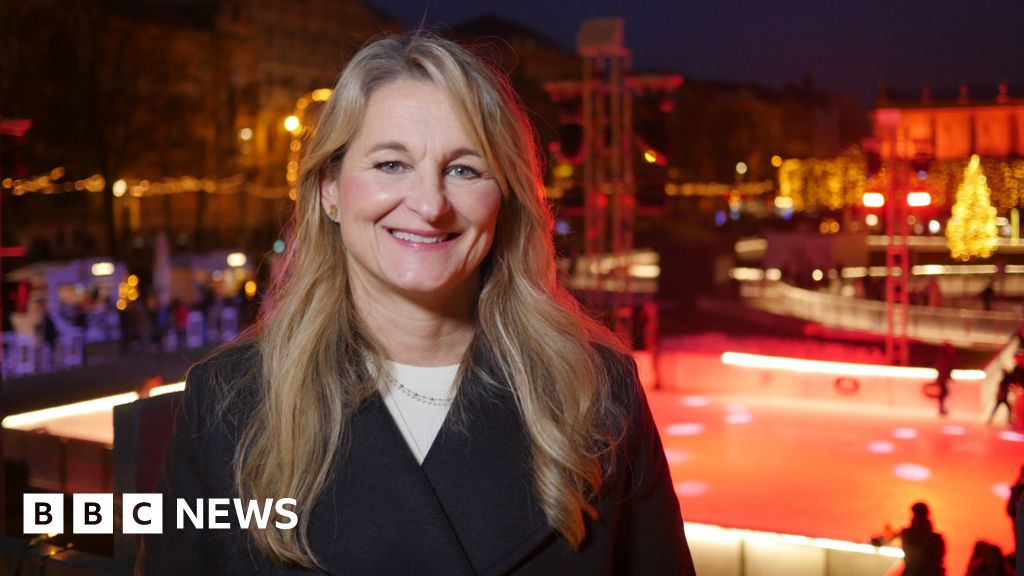Politics
Israel asserts control over Gaza despite ongoing truce
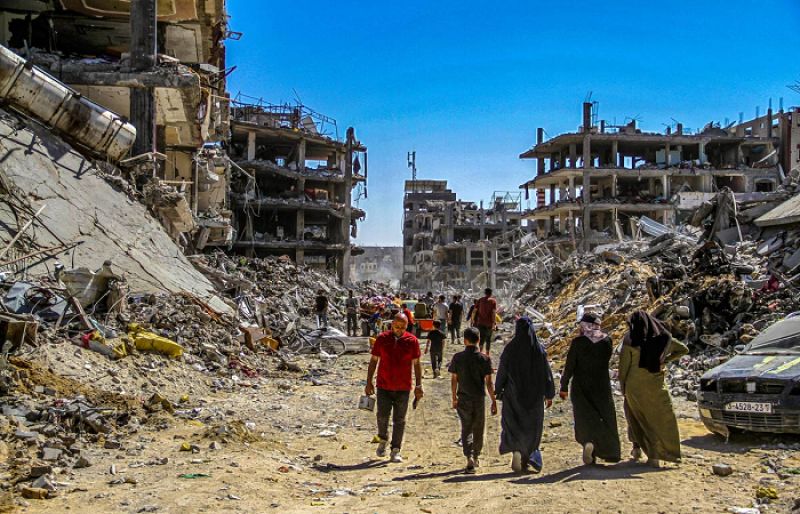

Israel reaffirmed on Sunday that it will retain full control of security inside Gaza, despite agreeing to a US-mediated ceasefire that envisions the deployment of an international peacekeeping force.
Prime Minister Benjamin Netanyahu told cabinet ministers that Israel alone would decide when and where to strike its enemies and which nations would be permitted to send troops to oversee the truce.
“Israel is a sovereign nation. We will defend ourselves by our own means and continue to shape our destiny,” Netanyahu declared. “We seek no one’s approval for our actions. Our security remains in our hands.”
AFP footage showed an Egyptian convoy entering Gaza carrying rescue personnel and heavy machinery to assist in locating the remains of Israeli hostages reportedly buried under the rubble in the war-ravaged territory.
Trucks bearing the Egyptian flag and loaded with bulldozers and diggers were seen heading toward Al-Zawayda, where an Egyptian aid coordination committee is based.
Israeli government spokesperson Shosh Bedrosian confirmed that Netanyahu personally authorized the Egyptian team’s entry.
“This is purely a technical team none of the members are military personnel,” Bedrosian clarified. “They have been permitted to cross the IDF’s Yellow Line into Gaza to conduct searches for the missing hostages.”
According to the terms of the US-brokered ceasefire, Israeli forces are to withdraw following two years of intense conflict with Hamas, while an international security contingent expected to consist largely of Arab and Muslim countries will assume responsibility for maintaining order in Gaza.
However, Israel has rejected any role for Turkey in the mission. Facing mounting pressure from hardliners within his coalition for agreeing to the truce, Netanyahu struck a defiant tone during the cabinet session in Jerusalem, emphasizing that Israel alone will dictate Gaza’s future security arrangements.
“We made clear with respect to international forces that Israel will determine which forces are unacceptable to us,” he said, one day after US Secretary of State Marco Rubio wound up the latest in a parade of high-level visits by Washington officials.
Later, Bedrosian put it more starkly: “The prime minister has said it’s going to be done the easy way or the hard way, and Israel will have overall security control of the Gaza Strip.”
“Gaza will be demilitarised and Hamas will have no part in governing the Palestinian people.”
Child’s dream is gone
Aid agencies complain that humanitarian convoys still do not have enough access to Gaza to alleviate the famine conditions in parts of the territory, and families there are still going hungry.
AFP journalists followed the family of 62-year-old grandmother Hiam Muqdad for a day in their Gaza City neighbourhood, where they live in a tent next to their ruined home and her barefoot grandchildren gather domestic waste and twigs to burn to heat water.
“When they said there was a truce, oh my God, a tear of joy and a tear of sadness fell from my eye,” Muqdad told AFP. “The child’s dream is gone. In the past they used to go to the park but today children play on the rubble.”
Israel has withdrawn its forces within Gaza to the so-called “Yellow Line” but remains in control of more than half the territory, approves every UN aid convoy going through its borders and has carried out at least two strikes since the ceasefire.
To underline Israel’s independence of action, Netanyahu said it had pummelled Gaza with 150 tonnes of munitions on October 19 after two of its soldiers were killed, and had conducted a strike on Saturday targeting an Islamic Jihad militant.
The United States and allies have set up a truce monitoring centre in southern Israel — the Civil-Military Coordination Centre (CMCC) — and dispatched a string of top officials from President Donald Trump’s administration to promote the ceasefire.
The latest Israeli strike came just as Rubio was leaving Jerusalem, but Washington’s top diplomat said he remained optimistic the ceasefire would broadly hold if Hamas agrees to disarm and hand over the rule of Gaza.
Rubio told reporters that Washington did not expect the Yellow Line to become Gaza’s new border and that Israel would eventually pull back.
“I think, ultimately, the point of the stabilisation force is to move that line until it covers hopefully all of Gaza, meaning all of Gaza will be demilitarised,” Rubio told reporters on his plane as he flew to Qatar.
The main Palestinian factions, including Hamas, have agreed to form a committee of technocrats to administer Gaza alongside the ceasefire and reconstruction effort.
But Hamas has resisted calls for its immediate disarmament and has launched a crackdown on rival Palestinian gangs and armed groups in Gaza.
Hostage recovery
In a statement on Sunday, Hamas’s lead negotiator Khalil Al-Hayya said the militant group’s weapons are “linked to the presence of the occupation and aggression”.
He added: “If the occupation ends, these weapons will be transferred to the state.”
Hamas has insisted it is serious about returning the remaining 13 hostage bodies.
They include 10 Israelis kidnapped during the group’s attack on October 7, 2023 that triggered the conflict, one Israeli missing since 2014, a Thai and a Tanzanian worker.
Hamas has already returned the remaining 20 living hostages and 15 bodies of hostages.
But Hamas warns it will struggle to find the bodies of the others in the ruins of Gaza, where more than 68,500 Palestinians have been killed by Israeli fire, according to figures from the health ministry of the Hamas-run territory deemed reliable by the UN.
Bedrosian dismissed this, telling reporters: “Hamas knows where our hostages are,” and adding the group needed to make more of an effort to retrieve the bodies.
Politics
Electricity outage hits San Francisco, thousands without power
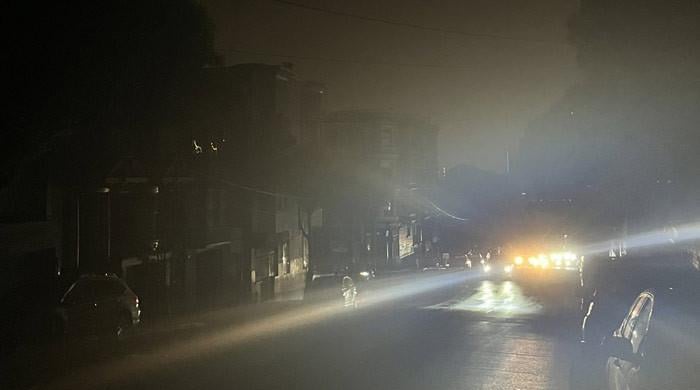
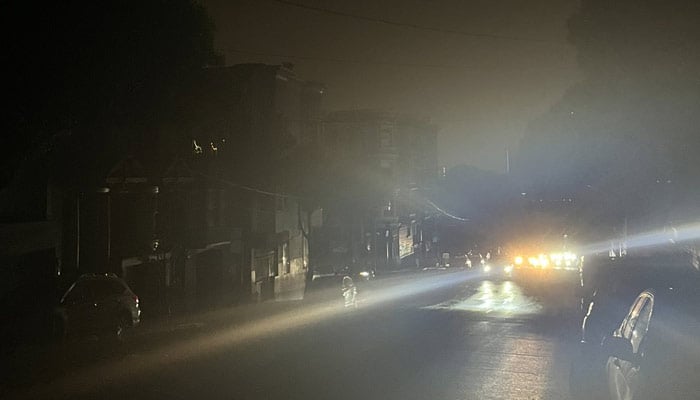
A huge electricity outage hit San Francisco on Saturday, leaving 130,000 residents without power for several hours at its peak, with the city’s main provider saying all services would return overnight.
Pacific Gas & Electric Company said in a statement on X that power had been restored to about 90,000 households by 9pm Saturday (0500 Sunday GMT), “with the remaining 40,000 customers expected to be restored overnight.”
Large parts of the West Coast tech hub, which has a population of more than 800,000 people, were plunged into darkness, with disruptions to public transport and many traffic lights not working on a busy Christmas shopping weekend before power began to be restored.
“I know this was a rough day,” San Francisco Mayor Daniel Lurie said in a video posted on X from the city´s emergency operations centre.
“That is progress (on restoration of power)… but for those of you who do not have power, we want to make sure you stay safe, check on your neighbours,” he said.
Lurie said police, fire department and other city officials had been sent out and asked residents to stay home if possible.
Many traffic signals were out, leaving traffic police to manage intersections and the self-driving ride-hailing service Waymo had paused operation of its vehicles, he said.
A fire at a substation had caused the blackout, Lurie said.
Parts of the city were blanketed in fog and many businesses were forced to close for the day at the height of the holiday shopping period, the San Francisco Chronicle newspaper reported, leaving normally bustling commercial areas quiet.
The abrupt fall in shoppers just days before Christmas was “devastating” for business, a manager of Black & Gold home goods store, told the San Francisco Chronicle.
Politics
US intercepts oil tanker off Venezuelan coast, Reports
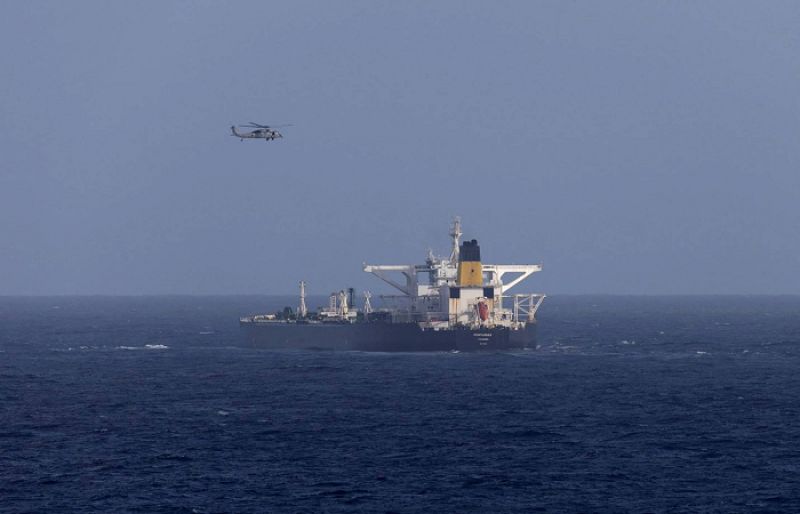
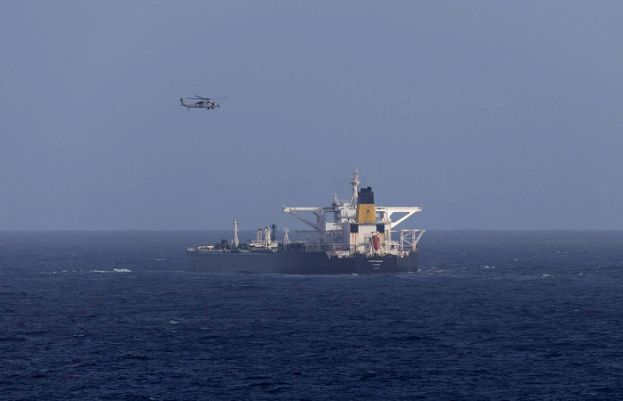
The United States has intercepted an oil tanker off the coast of Venezuela in international waters, U.S. Homeland Security Secretary Kristi Noem confirmed Saturday, a move that comes just days after US President Donald Trump announced a “blockade” of all sanctioned oil tankers entering and leaving Venezuela.
It’s the second time in recent weeks that the United States has gone after a tanker near Venezuela amid a large U.S. military build-up in the region.
Noem confirmed the Coast Guard intercepted a tanker that was last docked in Venezuela.
“The United States will continue to pursue the illicit movement of sanctioned oil that is used to fund narco terrorism in the region,” she said in a statement posted to social media. “We will find you, and we will stop you.”
Three US officials earlier Saturday had told Reuters that the vessel had been intercepted.
The Coast Guard and Pentagon referred questions to the White House. White House spokeswoman Anna Kelly said the tanker contained sanctioned oil.
“It was a falsely flagged vessel operating as part of the Venezuelan shadow fleet to traffic stolen oil and fund the narcoterrorist Maduro regime,” she wrote on X.
Venezuela’s oil ministry and state oil company PDVSA did not immediately reply to requests for comment. The Venezuelan government called the tanker interception a “serious act of international piracy.”
Venezuela “denounces and rejects the theft and hijacking of a new private vessel transporting oil, as well as the forced disappearance of its crew, committed by military personnel of the United States of America in international waters,” the statement said.
Caracas said the actions will be reported to the United Nations Security Council, other multilateral organizations and governments.
British maritime risk management company Vanguard said the vessel was believed to be the Panama-flagged Centuries, which was intercepted east of Barbados in the Caribbean Sea.
Jeremy Paner, a partner at Washington, D.C., law firm Hughes Hubbard and a former OFAC investigator, said the vessel has not been sanctioned by the US.
An October police raid in northern Rio de Janeiro became the deadliest in Brazil’s history, after leaving more than 120 people dead.
“The seizure of a vessel that is not sanctioned by the US marks a further increase in Trump’s pressure on Venezuela,” Paner said. “It also runs counter to Trump’s statement that the U.S. would impose a blockade of all sanctioned oil tankers.”
Politics
Gunmen kill 9, wound 10 in South Africa bar attack
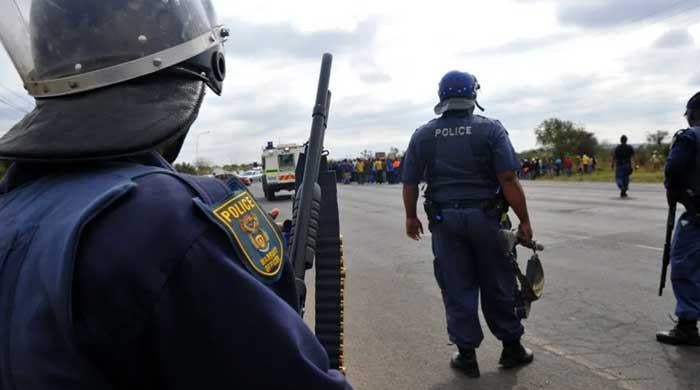
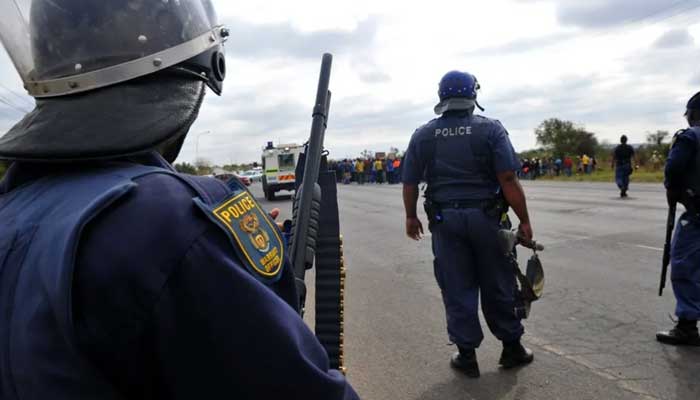
- Manhunt for the attackers has been launched, say police.
- Attackers in 2 vehicles randomly opened fire while fleeing scene.
- Dead included a driver from online car-hailing service.
JOHANNESBURG: Nine people were killed when unknown gunmen opened fire at a bar outside Johannesburg early Sunday, police said, in the second such shooting in South Africa this month.
Ten more were wounded when around a dozen men attacked the tavern at Bekkersdal, in a gold mining area around 40 kilometres (25 miles) southwest of the city, just before 1:00 am (2300 GMT).
Police initially said 10 people were killed but later revised the toll downwards.
The attackers in two vehicles “opened fire at tavern patrons and continued to shoot randomly as they fled the scene,” a police statement said.
The dead included a driver from an online car-hailing service who had been outside the bar, provincial police commissioner Major General Fred Kekana told SABC television.
A manhunt for the attackers had been launched, police said.
South Africa, the continent’s most industrialised nation, is grappling with entrenched crime and corruption driven by organised networks.
Shootings are common and often fuelled by gang violence and competition between informal businesses, contributing to one of the highest murder rates in the world.
On December 6, gunmen stormed a hostel at Saulsville township near the capital Pretoria, killing a dozen people including a three-year-old child.
Police said that shooting was at a site that was illegally selling alcohol.
Many South Africans own licensed firearms for personal protection but there are many more illegal guns in circulation despite relatively strict ownership laws.
An average of 63 people were killed each day between April and September, according to police data.
Most deaths stemmed from arguments, with robberies and gang violence also driving the toll.
In one of the deadliest recent incidents, 18 relatives were shot dead at a rural homestead in the country’s Eastern Cape province in September 2024.
-
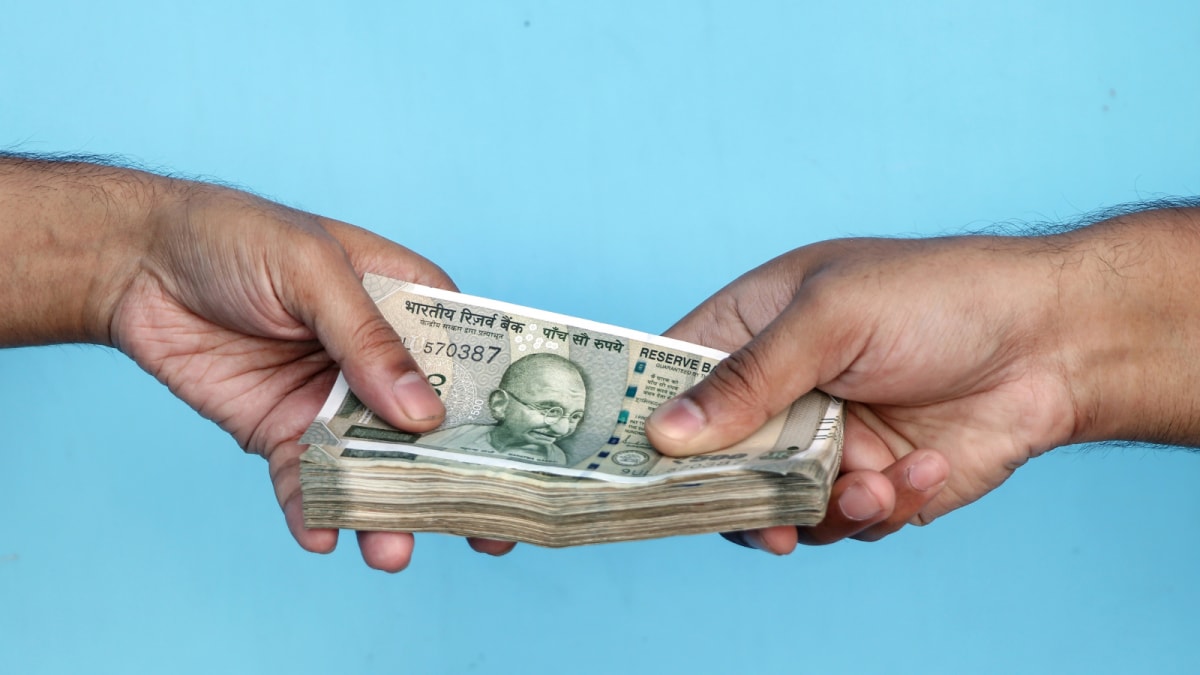
 Business1 week ago
Business1 week agoHitting The ‘High Notes’ In Ties: Nepal Set To Lift Ban On Indian Bills Above ₹100
-

 Business7 days ago
Business7 days agoStudying Abroad Is Costly, But Not Impossible: Experts On Smarter Financial Planning
-
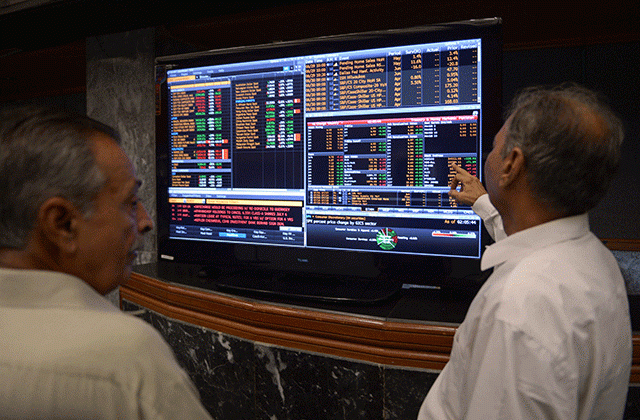
 Business7 days ago
Business7 days agoKSE-100 index gains 876 points amid cut in policy rate | The Express Tribune
-

 Sports6 days ago
Sports6 days agoJets defensive lineman rips NFL officials after ejection vs Jaguars
-
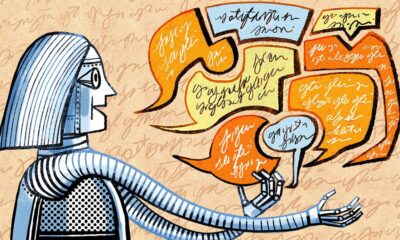
 Tech1 week ago
Tech1 week agoFor the First Time, AI Analyzes Language as Well as a Human Expert
-

 Entertainment6 days ago
Entertainment6 days agoPrince Harry, Meghan Markle’s 2025 Christmas card: A shift in strategy
-

 Business4 days ago
Business4 days agoBP names new boss as current CEO leaves after less than two years
-

 Tech4 days ago
Tech4 days agoT-Mobile Business Internet and Phone Deals





